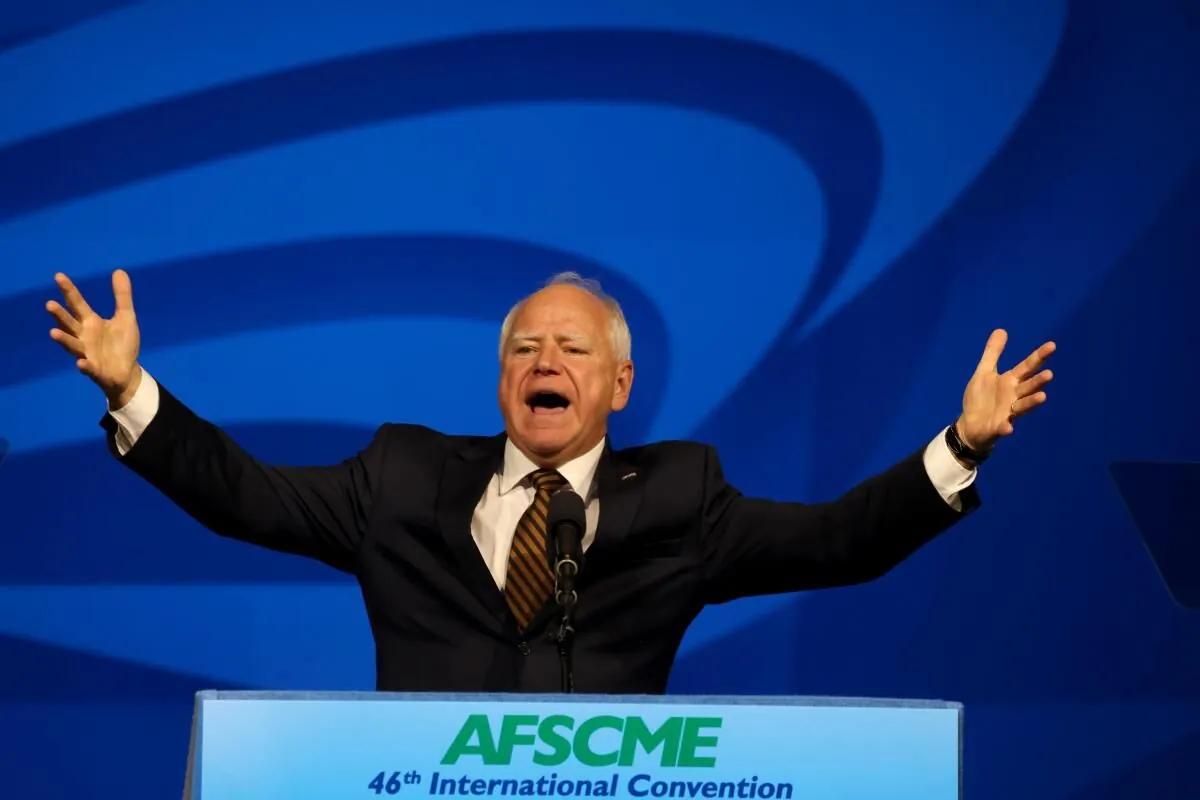Tim Walz, the Democratic vice presidential nominee, is scheduled to return to his home state of Nebraska on August 24, 2024. This visit marks his first trip back since securing the nomination, with thousands of Nebraskans expected to attend the event.
Walz's rural background, having grown up in Valentine and Butte in the Sandhills region, is seen as a potential asset for Democrats seeking to make inroads in traditionally Republican areas. Supporters believe his connection to small-town America could resonate with voters in regions where Democrats have struggled to gain traction in recent elections.
The campaign's focus on Omaha underscores the importance of Nebraska's 2nd Congressional District, which offers a single electoral vote. This district has proven to be a swing area, with Democrats securing victories in 2008 and 2020.
Walz's ties to Nebraska run deep. He received his BS in social science education from Chadron State College in Nebraska, laying the foundation for his future career in education and public service. His journey from a small-town Nebraska native to a potential vice president is a testament to his diverse background and experiences.
Before entering politics, Walz served in the United States Army National Guard from 1981 to 2005, becoming the highest-ranking enlisted soldier ever to serve in Congress. This military experience, combined with his rural roots, has shaped his approach to veterans' issues and rural economic development.
As the current governor of Minnesota, Walz has built a record of accomplishments that appeal to Democratic voters. He has been a strong advocate for education reform, increased school funding, and has taken steps to address climate change through initiatives like "Clean Cars Minnesota." In 2023, he signed a bill legalizing recreational marijuana in Minnesota, making it the 23rd state to do so.
While Democrats are enthusiastic about Walz's visit, Republicans have voiced their opposition. The Republican National Committee has criticized the Harris-Walz ticket, claiming it does not represent "Midwestern values." This criticism highlights the political divide that Walz will need to navigate as he campaigns in his home state.
Despite the partisan rhetoric, some believe Walz has the potential to appeal to both Democrats and Republicans. His background in education, military service, and governance provides a unique perspective that could resonate across party lines.
As Nebraska prepares for Walz's visit, the political landscape remains dynamic. With the Democratic convention in Chicago scheduled for the week of August 26, 2024, and Republican vice presidential candidate JD Vance expected to visit Omaha on August 31, 2024, Nebraska finds itself at the center of national political attention.
"I thought that was pretty impressive."
The coming weeks will test Walz's ability to connect with voters in his home state and potentially influence the electoral map in a region traditionally dominated by Republican support. As the campaign unfolds, all eyes will be on Nebraska to see if Walz's rural roots and diverse experience can indeed bridge the political divide.
